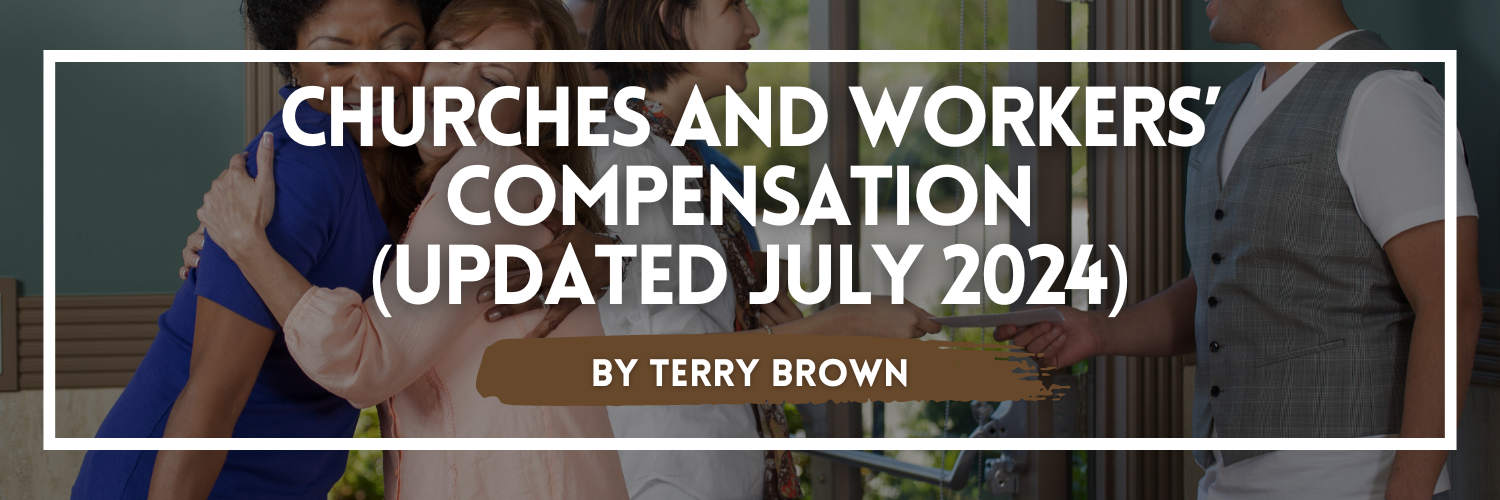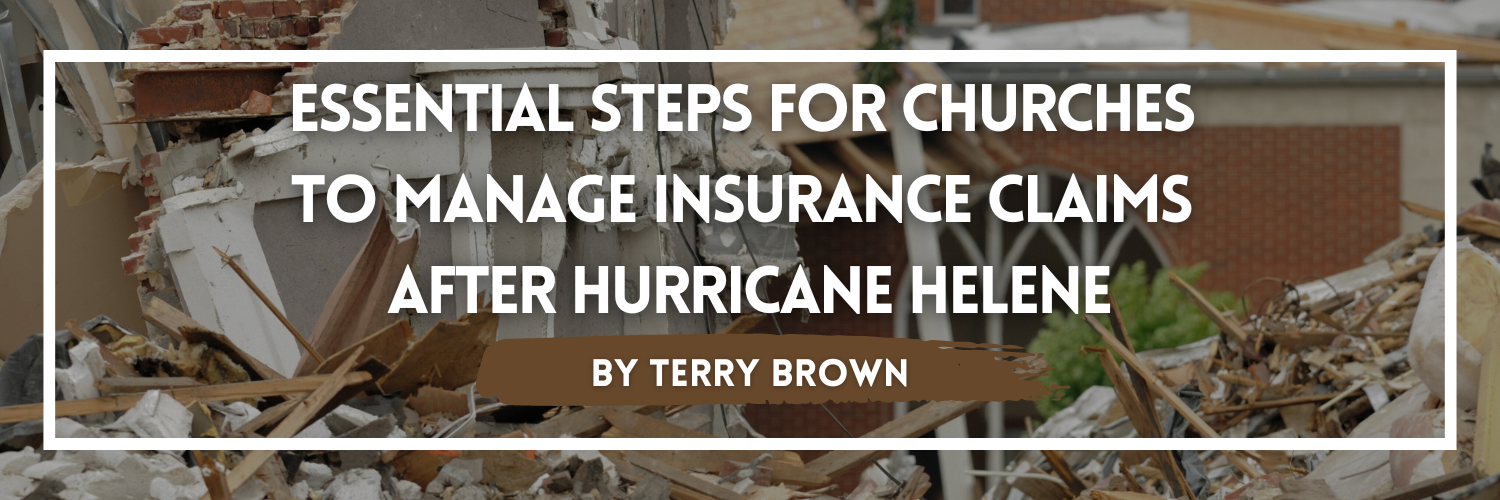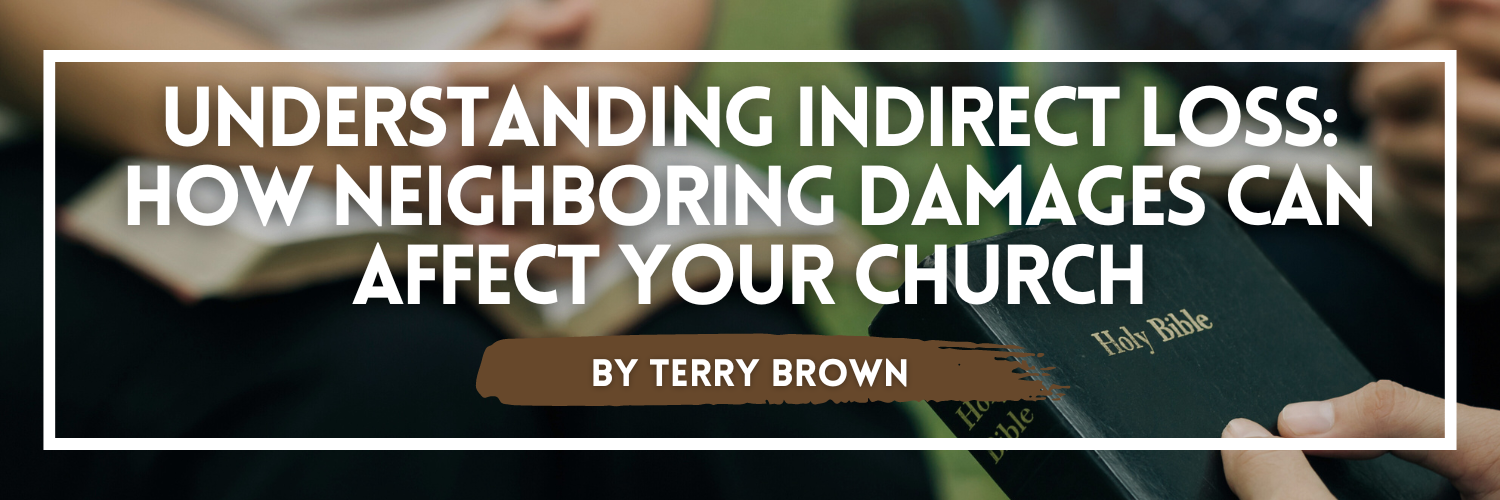Many churches have received the wrong information or are confused about workers’ compensation. It begins with the recognition that employees are an asset to be protected. People are what drive the church. Without people, there is no church.
KEY POINTS
- Employees are a vital asset to your church; workers’ compensation ensures their safety and security.
- Workers’ compensation covers medical expenses for work-related injuries and makes up for lost wages.
- Opt for increased coverage limits for minimal additional cost to ensure full compensation in severe accidents.
- Each state has specific regulations; for example, Florida mandates coverage for businesses with four or more employees.
- Misclassifying employees as independent contractors can lead to legal and financial penalties.
- Even part-time or volunteer workers should be considered for coverage to avoid potential disputes.
Understanding Workers’ Compensation Insurance
What is Workers’ Compensation Insurance?
Workers’ compensation insurance is designed to cover two main areas:
- Work-Related Injuries: This coverage pays for medical expenses and treatment for injuries that occur on the job.
- Lost Wages: This provides compensation for lost wages while an employee is recovering and unable to work.
Importance of Increased Limits
State statutes determine the limits and duration of benefits. Most states offer the option to increase these statutory limits for a small additional premium. I highly recommend always opting for the increased limits. The price increase is minimal, and in the event of a serious accident, the extended coverage can be invaluable. For instance, the additional coverage could be the difference between being fully compensated for a severe injury or facing significant out-of-pocket expenses.
State Regulations and Limits
Each state regulates its own workers’ compensation benefits. Let’s use Florida as an example to illustrate typical guidelines. The minimum coverage limits in Florida are:
- $100,000 per person
- $100,000 per occurrence
- $500,000 aggregate benefit
Mandatory Coverage in Florida
In Florida, workers’ compensation becomes mandatory once a business hires its fourth employee. This rule applies regardless of whether the employees are full-time or part-time. Part-time employees are treated the same as full-time employees under this mandate.
For example, if a church in Florida hires a fourth employee, even if that employee works part-time hours, the church must provide workers’ compensation coverage. This ensures that all workers, regardless of their hours, are protected in the event of a workplace injury.
Workers’ Compensation for Churches with Fewer Than Four Employees
Is Workers’ Compensation Necessary?
A common question I receive is: What if your church has fewer than four employees? Do you still need workers’ compensation? The short answer is: Yes, if you want their medical bills paid and lost wages covered, you do.
Why General Liability Insurance Isn’t Enough
It’s important to understand that your church insurance policy will specifically exclude employees. For example, if the pastor falls off a ladder while changing a light bulb, he is on his own for medical bills. The church liability policy will not cover this.
To illustrate further, consider a restaurant scenario: If you slip on water in a restaurant, the restaurant’s liability policy has medical payments coverage for you as a patron. However, if the waiter slips on the same water, he is not covered by the liability policy; he is covered by the workers’ compensation policy.
Misconceptions About Independent Contractors
Many churches mistakenly believe that their pastor, being a 1099 (independent contractor), is not an employee. Sometimes a pastor is simply paid a housing allowance and not a regular salary. In both cases, this thinking is incorrect. The requirements to be an independent contractor are very specific. If you expect your pastor to preach every week or if he has an office at the church, he is not an independent contractor according to Florida Statute 440.02(15)(d).
Criteria for Independent Contractors
To qualify as an independent contractor, at least four of the following criteria must be met:
- Separate Business: The independent contractor maintains a separate business with their own work facility, truck, equipment, materials, or similar accommodations.
- Federal Employer Identification Number: The independent contractor holds or has applied for a federal employer identification number, unless they are a sole proprietor not required to obtain one.
- Compensation Structure: The independent contractor receives compensation for services rendered or work performed, and such compensation is paid to a business rather than to an individual.
- Business Bank Accounts: The independent contractor holds one or more bank accounts in the name of the business entity for paying business expenses or other expenses related to services rendered.
- Multiple Clients: The independent contractor performs work for any entity besides the employer at their own election without needing to complete an employment application or process.
- Competitive Bids: The independent contractor receives compensation for work or services rendered on a competitive-bid basis or completion of a task or a set of tasks as defined by a contractual agreement, unless the agreement states that an employment relationship exists.
Additional Conditions for Independent Contractors
If the above criteria are not met, an individual may still be presumed to be an independent contractor if they meet any of the following conditions:
- Control Over Work: The independent contractor performs or agrees to perform specific services for a set amount of money and controls the means of performing the services.
- Principal Expenses: The independent contractor incurs the principal expenses related to the service or work they perform.
- Satisfactory Completion: The independent contractor is responsible for the satisfactory completion of the work or services.
- Commission-Based Pay: The independent contractor receives compensation for work performed on a commission or per-job basis.
- Profit or Loss: The independent contractor may realize a profit or suffer a loss in connection with performing work or services.
- Recurring Liabilities: The independent contractor has continuing or recurring business liabilities or obligations.
- Business Success Factors: The success or failure of the independent contractor’s business depends on the relationship of business receipts to expenditures.
Coverage for Non-Employee Workers
Should Non-Employee Workers Be Covered?
Another question that often arises is whether someone who cleans or cuts the grass should be covered by workers’ compensation. Many times, this is a church member working to earn extra income. My question is, “If they were hurt, would the church want their medical bills and/or lost wages covered?”
Employer/Employee Relationship and Legal Implications
If the worker can demonstrate an employer/employee relationship, then the courts may answer your question. Some states can impose fines if an employer deliberately fails to cover or misclassifies employees.
Real-Life Example: Camp Caretakers
Consider a real-life example: I had a church that owned a camp in South Florida. The caretakers lived on the property. While baking cookies for a few campers, the wife was badly burned. The church did not pay them a salary; in exchange for looking after the property, they received “free” rent. A claim was made by the wife, and despite the church discouraging it since the claimant was not in the US legally, the workers’ compensation policy paid her medical bills. Her “free” rent was treated as compensation.
Avoiding Adversarial Positions
Why create an adversarial position when it could have been easily avoided? Workers’ compensation for churches is inexpensive when considering the benefit. Don’t take the risk. You do not want your church to receive bad press in the community because you did not care for your workers properly.
Determining Lost Wages in Florida
Understanding how lost wages are calculated is crucial for both employers and employees. In Florida, a specific formula is used to determine your lost wage benefit under workers’ compensation. The formula takes into account the preceding 13 weeks of wages, not counting the week in which you were injured. This average wage calculation ensures a fair compensation based on your typical earnings.
- Two-Thirds Compensation: Workers’ compensation benefits pay two-thirds of your average weekly wage based on this 13-week period. This helps to cover the majority of your income, allowing you to focus on recovery without the added stress of financial instability.
- Maximum Benefit: The maximum benefit available in Florida is $886 per week. This cap ensures that while the compensation is substantial, it is also sustainable within the system’s limits.
- Timely Payments: You should receive your first check within 21 days after reporting the injury. This prompt payment is critical as it provides immediate financial relief during what can be a stressful and uncertain time.
This system ensures that employees are not left without income following a work-related injury, emphasizing the importance of having such a policy in place. For employers, it underscores the necessity of compliance to avoid potential legal issues and ensure their workers are taken care of, fostering a supportive and responsible work environment.
Conclusion: Protecting Your Church Community
Churches should be safe havens for families and members, providing a sanctuary where everyone feels secure and cared for. However, it’s equally important to remember and protect the dedicated workers who help maintain these sacred spaces. Ensuring that your church has comprehensive workers’ compensation coverage is not just about compliance with the law; it’s about showing compassion and responsibility towards those who serve your community.
Neglecting to provide proper coverage can lead to significant financial and legal repercussions, not to mention the potential harm to your church’s reputation. By being proactive and ensuring that your church workers are covered, you are fostering a safe, supportive environment for everyone involved.
Don’t wait until it’s too late to review your insurance policies. Take the first step towards safeguarding your church and its employees by getting a free, no-obligation church insurance review and quote. Click the link below to learn more about how you can protect your church community effectively.
[Click here to get a church insurance quote from Terry Brown]
Frequently Asked Questions
Why is workers’ compensation important for churches?
Workers’ compensation ensures the safety and security of your employees by covering medical expenses for work-related injuries and compensating for lost wages. This protection is crucial as it shows that the church values and safeguards its workers.
What does workers’ compensation insurance cover?
Workers’ compensation insurance covers two main areas: medical expenses for work-related injuries and compensation for lost wages while the employee is recovering and unable to work.
Should we opt for increased coverage limits?
Yes, it is highly recommended to opt for increased coverage limits. The additional cost is minimal, and in the event of a severe accident, the extended coverage can be invaluable, ensuring full compensation and avoiding significant out-of-pocket expenses.
How do state regulations affect workers’ compensation?
Each state regulates its own workers’ compensation benefits, including coverage limits and mandatory requirements. For example, in Florida, businesses with four or more employees must provide workers’ compensation, regardless of whether the employees are full-time or part-time.
Do churches with fewer than four employees need workers’ compensation?
Yes, even if your church has fewer than four employees, it is essential to have workers’ compensation to cover their medical bills and lost wages in case of an injury. General liability insurance will not cover these expenses.
Can pastors be classified as independent contractors?
Often, pastors are incorrectly classified as independent contractors. If the pastor preaches regularly or has an office at the church, they are typically considered employees, not independent contractors, according to specific legal criteria.
What are the criteria for being classified as an independent contractor?
- To be classified as an independent contractor, at least four of the following criteria must be met:
- Maintains a separate business with their own work facility, truck, equipment, etc.
- Holds or has applied for a federal employer identification number.
- Receives compensation paid to a business rather than an individual.
- Holds one or more bank accounts in the name of the business entity.
- Performs work for any entity besides the employer without needing an employment application.
- Receives compensation for work on a competitive-bid basis or task completion as per a contractual agreement.
Should part-time or volunteer workers be covered by workers’ compensation?
Yes, even part-time or volunteer workers should be considered for coverage to avoid potential disputes and ensure their medical bills and lost wages are covered if they are injured while working for the church.
What are the legal implications of misclassifying employees?
Misclassifying employees as independent contractors can lead to legal and financial penalties. Some states impose fines on employers who deliberately fail to cover or misclassify employees, leading to potential legal issues and financial losses.
What should we do if someone is injured while performing work for the church?
Ensure that the worker’s medical bills and lost wages are covered by your workers’ compensation policy. This helps avoid adversarial positions and demonstrates that the church cares for its workers properly.
If an employee is injured, seek medical care. Your policy should have a poster with preferred providers, however, if it is an emergency situation go to the nearest facility. In addition, most states have a “first report of injury” form which should be completed as soon as possible. Most carriers have 24/7 phone assistance. As your agent I am only a phone call away to help.




